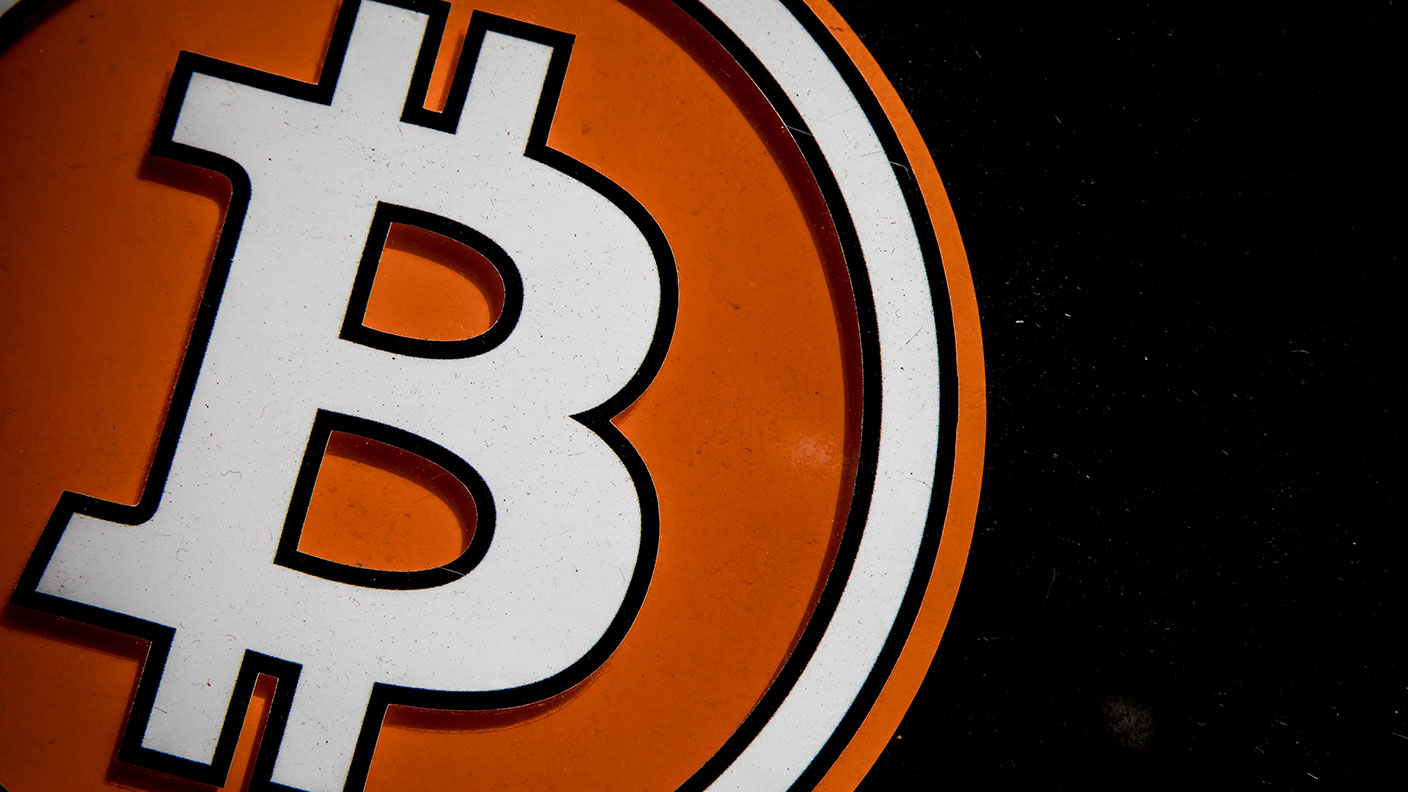Is bitcoin going mainstream, and should you buy in?
Bitcoin mania shows no signs of abating. And despite the scepticism of the world’s central banks, commercial banks and institutional investors are piling in. So should you buy bitcoin too? Saloni Sardana investigates.


Get the latest financial news, insights and expert analysis from our award-winning MoneyWeek team, to help you understand what really matters when it comes to your finances.
You are now subscribed
Your newsletter sign-up was successful
Want to add more newsletters?

Twice daily
MoneyWeek
Get the latest financial news, insights and expert analysis from our award-winning MoneyWeek team, to help you understand what really matters when it comes to your finances.

Four times a week
Look After My Bills
Sign up to our free money-saving newsletter, filled with the latest news and expert advice to help you find the best tips and deals for managing your bills. Start saving today!
Last week, US Federal Reserve chair Jerome Powell made his views on bitcoin clear: it’s “an asset for speculation”, one that “is essentially a substitute for gold rather than for the dollar”, Powell told the Bank for International Settlements’ digital banking conference. Nor is it “a useful store of value” because of its volatility.
Powell’s comments are perhaps unsurprising. You wouldn’t expect the governor of the world’s most important central bank to say: “rush out and buy bitcoin”. Yet his views are not necessarily shared by Wall Street, with the likes of BNY Mellon and Goldman Sachs taking bigger steps into the area of cryptocurrencies in general.
It’s little wonder that institutions are becoming more interested. Bitcoin has now been around since 2008; in that time it has survived several boom and bust phases, and in each boom phase, people have potentially made a lot of money.
MoneyWeek
Subscribe to MoneyWeek today and get your first six magazine issues absolutely FREE

Sign up to Money Morning
Don't miss the latest investment and personal finances news, market analysis, plus money-saving tips with our free twice-daily newsletter
Don't miss the latest investment and personal finances news, market analysis, plus money-saving tips with our free twice-daily newsletter
Today, despite all the scepticism, it remains trading close to its recent all-time high of $61,644, thanks to a search both for inflation hedges (given the scale of public debt and money being printed by central banks) and, for returns in a low-interest rate environment coupled with frothy equity and bond markets, points out Anthony Hardy, research analyst at Franklin Equity Group.
So are cryptocurrencies becoming mainstream – and should you invest?
Banks are turning bullish on crypto
Mainstream adoption of cryptocurrencies is growing fast. Since the start of the year, several big banks have embraced crypto. Goldman Sachs, for example, reintroduced plans to launch a cryptocurrency desk for futures trading.
It’s not alone. Just a few months after America’s oldest bank – Bank of New York Mellon – announced it will roll out a new digital custody unit later this year, Morgan Stanley became the first bank to give its wealth management clients access to three cryptocurrency funds, according to CNBC.
Meanwhile, in a 108-page report published in February (which came in for some criticism), Citigroup gave bitcoin a big endorsement, saying that it “may be optimally positioned to become the preferred currency for global trade”.
It is not just the banks who are increasingly endorsing crypto. Tesla’s Elon Musk started accepting bitcoin as payment for cars earlier this month, just a few weeks after Tesla shifted $1.5bn into bitcoin.
The crypto rally has also captured the attention of individual investors who view bitcoin as a potentially better hedge against inflation than traditional hedges such as gold, primarily because bitcoin has a fixed long-run supply of 21 million coins, compared to central banks’ ability to print as much fiat currency as they like.
The US recently approved a $1.9trn stimulus plan which market participants think may be seen as the tipping point for inflation to stage a comeback (and now Joe Biden’s administration is pushing for a further $3trn spending plan). And with the Fed signalling that it won’t raise rates until 2024 at the earliest, inflation is very much at the fore of investors’ minds.
Why bitcoin may not be the best hedge against inflation
But are people really buying bitcoin because they think it’s a good hedge against inflation? Bank of America doesn’t seem to think so. “Bitcoin has… become related to risk assets, it is not tied to inflation, and remains exceptionally volatile, making it impractical as a store of wealth or payment mechanism”, Bank of America’s commodity and derivatives strategist Francisco Blanch, said in a recent note, according to CNBC.
Economist Nouriel Roubini – renowned for his bearish views and a long-time critic of digital currencies – agrees. “If people were really worried about inflation they would diversify in a wide range of assets that are historical good hedges against inflation. That's not happening”, he says.
Another point is that, while bitcoin does have a fixed supply in much the same way other assets viewed as inflation hedges such as gold, it’s still possible to launch competing cryptocurrencies which can expand the market, argues Daniel Kern, chief investment officer at TFC Financial Management.
Should you invest in cryptocurrencies?
Discussions about cryptocurrencies can be quite polarised. True believers get very defensive, while ardent crypto critics act as though the whole thing is on the verge of collapse. We take more of a middle view.
Ignoring crypto seems unwise. It’s clear that digital currencies and the blockchain are of great interest to governments and central banks. And bitcoin has now managed to survive enough booms and busts to convince us that it’s not a flash in the pan. So investors should pay attention to the space and educate themselves on it.
In a recent issue of MoneyWeek magazine, Charlie Morris made the case for holding both bitcoin and gold as hedges against different stages of inflation – he believes they complement rather than compete with one another.
Equally, if you’re not an early adopter or particularly tech-minded, we wouldn’t worry too much. If crypto becomes significant enough to be considered an asset class in its own right (rather than an evolution of currencies, say), then institutional adoption will eventually lead to investment vehicles that are more easily accessible to private investors.
If you’re interested to learn more about bitcoin generally, then you can currently get a free beginner’s guide to bitcoin when you subscribe to MoneyWeek. Get the report, plus your first six issues, absolutely free here.
Get the latest financial news, insights and expert analysis from our award-winning MoneyWeek team, to help you understand what really matters when it comes to your finances.
Saloni is a web writer for MoneyWeek focusing on personal finance and global financial markets. Her work has appeared in FTAdviser (part of the Financial Times), Business Insider and City A.M, among other publications. She holds a masters in international journalism from City, University of London.
Follow her on Twitter at @sardana_saloni
-
 Should you buy an active ETF?
Should you buy an active ETF?ETFs are often mischaracterised as passive products, but they can be a convenient way to add active management to your portfolio
-
 Power up your pension before 5 April – easy ways to save before the tax year end
Power up your pension before 5 April – easy ways to save before the tax year endWith the end of the tax year looming, pension savers currently have a window to review and maximise what’s going into their retirement funds – we look at how
-
 How a dovish Federal Reserve could affect you
How a dovish Federal Reserve could affect youTrump’s pick for the US Federal Reserve is not so much of a yes-man as his rival, but interest rates will still come down quickly, says Cris Sholto Heaton
-
 'Investors should brace for Trump’s great inflation'
'Investors should brace for Trump’s great inflation'Opinion Donald Trump's actions against Federal Reserve chair Jerome Powell will likely stoke rising prices. Investors should prepare for the worst, says Matthew Lynn
-
 Key lessons from the MoneyWeek Wealth Summit 2025: focus on safety, value and growth
Key lessons from the MoneyWeek Wealth Summit 2025: focus on safety, value and growthOur annual MoneyWeek Wealth Summit featured a wide array of experts and ideas, and celebrated 25 years of MoneyWeek
-
 The Stella Show is still on the road – can Stella Li keep it that way?
The Stella Show is still on the road – can Stella Li keep it that way?Stella Li is the globe-trotting ambassador for Chinese electric-car company BYD, which has grown into a world leader. Can she keep the motor running?
-
 The challenge with currency hedging
The challenge with currency hedgingA weaker dollar will make currency hedges more appealing, but volatile rates may complicate the results
-
 Tesla seeks approval to supply electricity to UK homes – could it disrupt the energy market?
Tesla seeks approval to supply electricity to UK homes – could it disrupt the energy market?Tesla has applied for a license to supply UK households with electricity, but taking on the biggest providers could prove challenging
-
 What's behind the big shift in Japanese government bonds?
What's behind the big shift in Japanese government bonds?Rising long-term Japanese government bond yields point to growing nervousness about the future – and not just inflation
-
 Can Donald Trump fire Jay Powell – and what do his threats mean for investors?
Can Donald Trump fire Jay Powell – and what do his threats mean for investors?Donald Trump has been vocal in his criticism of Jerome "Jay" Powell, chairman of the Federal Reserve. What do his threats to fire him mean for markets and investors?
